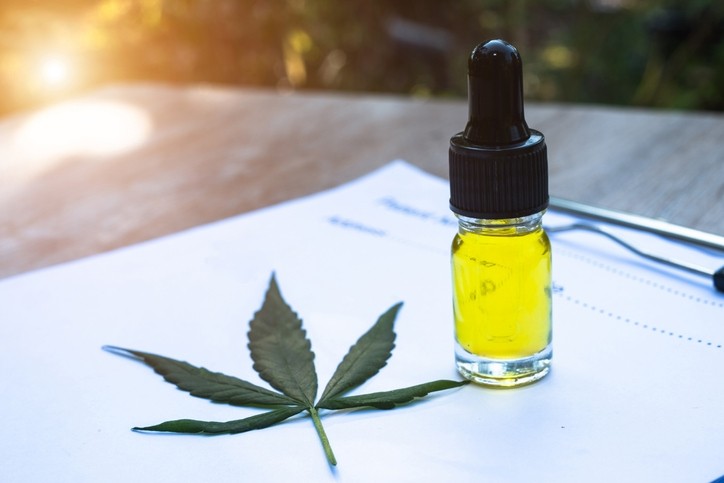More trades react to sleepy FDA

Lawmakers, businesses and trade groups have been begging the US Food and Drug Administration to allow CBD in foods and supplements as the Agency’s inaction fuels a chaotic marketplace. The FDA has finally spoken, only to announce it’s handing the issue over to Congress.
Last week’s announcement from Janet Woodcock, MD, FDA’s Principal Deputy Commissioner, concluded that existing regulatory frameworks for foods and supplements are not appropriate for CBD. Woodcock said in a statement that FDA determined, “a new regulatory pathway for CBD is needed that balances individuals’ desire for access to CBD products with the regulatory oversight needed to manage risks.”
Essentially the FDA wants Congress to intervene, saying FSA does not have adequate oversight powers to ensure the safety of CBD products.
This is not it
The trades have largely expressed disappointment with the announcement. Despite bipartisan support for hemp and CBD, many are concerned that the matter could stay in limbo given the closely divided Congress.
“There is a legal process to evaluate the safety of new dietary ingredients, and this is not it,” said Consumer Healthcare Products Association (CHPA) President and CEO Scott Melville.
Michael McGuffin, president of the American Herbal Products Association (AHPA), doesn’t think this is it either.
“Although FDA acknowledged consumer demand for access to CBD products, which are not currently subject to active regulatory enforcement by the agency, it is extremely disappointing that it has taken FDA this long to come to the equally disappointing conclusion that kicks the can down the road and passes the buck to Congress. As we stated previously, the law clearly provides an opportunity for FDA to grant an exception to the prior drug exclusion for cannabis-derived ingredients, including CBD. AHPA wants to see FDA use that authority to have CBD come to market like any other dietary supplement would. We believe CBD should be regulated like any other herbal constituent," McGuffin said.
Bill Bookout, president and founder of the National Animal Supplement Council (NASC), expressed optimism that Congress would be able to tackle the issue.
“Over our 21-year history, we have always worked very successfully with the FDA to define, develop, and implement regulatory pathways that provide responsible outcomes for all stakeholders while maintaining regulatory oversight. We view this announcement and indications we have received from FDA-CVM as positive progress, and we welcome the opportunity to continue to help shape a viable path forward,” Bookout said.
Citizen petitions denied
The FDA also denied three citizen petitions which had asked the Agency to conduct rulemaking to allow the marketing of CBD products as dietary supplements.
The citizen petitions were filed by the Council for Responsible Nutrition (CRN), Consumer Healthcare Products Association (CHPA) and Natural Products Association (NPA).
“FDA’s indecision has been the decision on CBD for far too long, and a confused marketplace of unregulated CBD products has emerged that does not serve public health. In this respect, CHPA welcomes today’s action on the Citizen’s Petition we filed in 2019. However, FDA cannot – via a citizen petition response – undermine the Federal Food, Drug, and Cosmetic Act’s direction and authority to initiate rulemaking to address the exclusionary provisions and to let the New Dietary Ingredients (NDI) notification pathway serve its essential function, which is to require sponsors to demonstrate the safety of new ingredients before going to market. Therefore, we have concerns about FDA’s sweeping action today and the precedent it sets for future NDI submissions,” Melville said.
“We look forward to working with Congress to explore modernization of the Dietary Supplement Health and Education Act (DSHEA) and to ensure that the NDI process works as was originally intended,” Melville added.
Frustration has been brewing
Last September, bipartisan congressional lawmakers sent a letter to FDA complaining about the “completely insufficient response” the Agency provided in response to their bill calling for CBD to be permitted and regulated as a food additive.
More recently, Rep. James Comer (R-KY), Chairman of the US House Oversight Committee, announced plans to investigate the FDA for its inaction on CBD.
Earlier this month, the US Hemp Roundtable posted a video on its YouTube channel with Comer speaking to its General Counsel, Jonathan Miller. Comer told Miller that he intends to bring FDA Commissioner, Robert Califf before his committee for questioning regarding the Agency’s passivity.
Miller expressed gratitude for Comer, saying a US hemp industry may not exist if it weren't for the Chairman’s actions as Kentucky’s agriculture commissioner and his continued advocacy for the nation’s farmers in his current role.
Agency shakeups
Last week Frank Yiannas announced his resignation as deputy commissioner for food policy and response at FDA, citing a problematic decentralized leadership structure at the agency.
In his resignation letter to FDA Commissioner Robert Califf, Yiannas highlighted both his and the department’s achievements during his tenure, including advancements to the Food Safety Modernization Act (FSMA).
Yiannas did not specifically call out frustrations with the lack of CBD progress, but did mention the infant shortage crisis. His last day at the Agency will be February 24.













